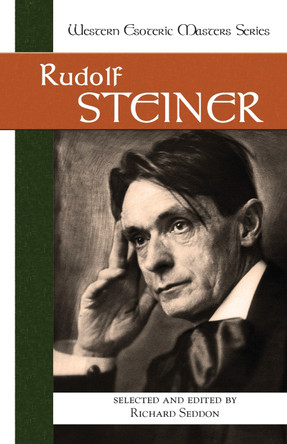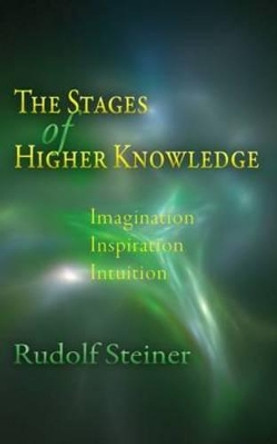Rudolf Steiner draws a clear distinction between the spiritual meaning of the word Intuition and its ordinary definition. As the highest form of spiritual perception, Intuition has an existential significance for our process of knowledge. Through systematic schooling, thinking can be developed into an intuitive organ by means of which the spiritual can consciously be understood and penetrated. Intuition can reveal the essence of the spirit, the processes through which human beings and the world came into existence, and the events in our life after death. In his later works, Steiner spoke of Intuition as a form of supersensible knowledge that could provide direct insight into practical life, as exemplified here in his commentary on geometry, architecture, education, medicine, eurythmy, painting and the social organism. The concept of Intuition is fundamental to Rudolf Steiner's spiritual philosophy. It denotes a clear, pure mode of comprehension akin to a mathematical concept. We meet it in his earliest writings on Goethe, in the development of his philosophical ideas and in his many lectures and addresses. Ably compiled and introduced by Edward de Boer, this volume clarifies a concept that evolved in Steiner's thinking. By following the idea of Intuition in its gradual transformation and amplification throughout Steiner's writing and lecturing career, the book offers not only inspiring paths to spiritual knowledge, but also insights into how anthroposophy developed. Chapters include: `The Perceptive Power of Judgement - Goethe's Intuition'; `Moral Intuition - Experiencing Thinking'; `The Human Being - Intuition as a Bridge to the Spirit'; `The Schooling Path - Spiritual Development and the Power of Intuition'; `Intuition Exercises'; `Three Stages of Consciousness - Intuition in Relation to Imagination and Inspiration'; `Knowledge of Destiny - Intuition and Repeated Earth Lives'; `Intuition in Practice - Examples from Various Specialist Fields'.
About the AuthorRudolf Steiner (1861-1925) called his spiritual philosophy "anthroposophy", meaning "wisdom of the human being". As a highly developed seer, he based his work on direct knowledge and perception of spiritual dimensions. He initiated a modern and universal "science of spirit", accessible to anyone willing to exercise clear and unprejudiced thinking. From his spiritual investigations Steiner provided suggestions for the renewal of many activities, including education (both general and special), agriculture, medicine, economics, architecture, science, philosophy, religion and the arts. Today there are thousands of schools, clinics, farms and other organizations involved in practical work based on his principles. His many published works feature his research into the spiritual nature of the human being, the evolution of the world and humanity, and methods of personal development. Steiner wrote some 30 books and delivered over 6000 lectures across Europe. In 1924 he founded the General Anthroposophical Society, which today has branches throughout the world.
Book InformationISBN 9781855845572
Author Rudolf SteinerFormat Paperback
Page Count 146
Imprint Rudolf Steiner PressPublisher Rudolf Steiner Press






